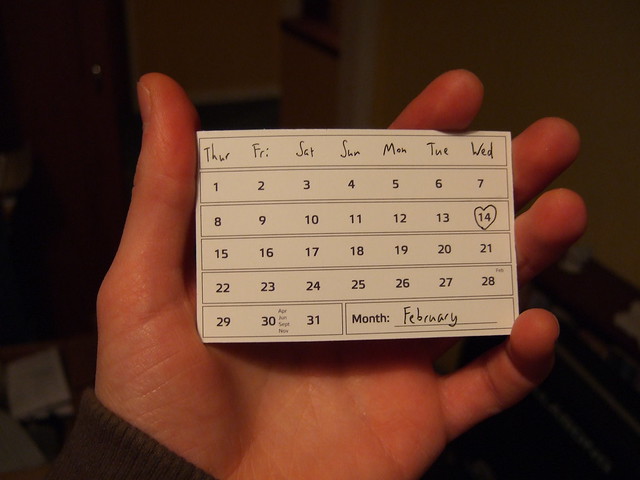Making time stand still without moving the planets

An economist and an astrophysicist have found one way to make time more consistent, on repeat. We are not talking about the movie Groundhog Day. These scientists have created a new calendar where each new 12 month period is identical to the one before. And remains that way in perpetuity.
The Hanke-Henry Permanent Calendar, named after its creators Richard Conn Henry (the astrophysicist) and Steve H. Hanke (the economist), would have Christmas fall on a Sunday and it would also fall on a Sunday in 2012, 2013, and 2014 and so on. So 30 days hath September, April, June and November can be tossed out of your memory. In the new calendar, September, March, June and December would have 31 days, and the rest would have 30.
But honestly, why do this? The Gregorian calendar, which we’ve been using since 1582—when Pope Gregory altered a calendar that was instituted in 46 BC by Julius Caesar—is working pretty well.
The scientists explain in a press release:
"Our plan offers a stable calendar that is absolutely identical from year to year and which allows the permanent, rational planning of annual activities, from school to work holidays," said Henry. "Think about how much time and effort are expended each year in redesigning the calendar of every single organization in the world and it becomes obvious that our calendar would make life much simpler and would have noteworthy benefits."
Yes having birthdays and holidays fall on the same day every year might make it easier to remember them. Especially for those who travel internationally. But really? All that work just to remember holidays?
Well apparently it can be economically helpful as well. At least calculating interest on mortgages would become a lot easier. Hanke explains:
"Our calendar would simplify financial calculations and eliminate what we call the 'rip off' factor,'" said Hanke. "Determining how much interest accrues on mortgages, bonds, forward rate agreements, swaps and others, day counts are required. Our current calendar is full of anomalies that have led to the establishment of a wide range of conventions that attempt to simplify interest calculations. Our proposed permanent calendar has a predictable 91-day quarterly pattern of two months of 30 days and a third month of 31 days, which does away with the need for artificial day count conventions."
Of course Hanke and Henry are not the first to attempt a new calendar. But they do think theirs offers new advantages. All of the major calendar reforms have involved breaking the seven-day cycle of the week. And this is a real issue because it violates the Fourth Commandment, "Remember the sabbath day, to keep it holy." Hanke and Henry don’t break the cycle.
But here’s the real challenge in designing a new calendar. The fact that Earth years are 365.2422 days long. How does one deal with those extra bits of days? Well the Hanke-Henry calendar drops leap years altogether and adds an extra week at the end of December every five or six years. And this, they say, brings their calendar in sync with the seasons as the Earth circles the sun.
But Hanke and Henry want to go every further and boldly recommend we abolish time zones and adopt Universal Time (Greenwich Mean Time) in order to synchronize global dates and times. That way business meetings, school calendars would be the same year after year. The authors argue in a paper published earlier this month in Globe Asia, “Today's cacophony of time zones, daylight savings times and calendar fluctuations, year after year, would be over. The economy -- that's all of us -- would receive a permanent 'harmonization' dividend.”
[via Eurekalert]
[Photo Joe Lanman]
This post was originally published on Smartplanet.com

